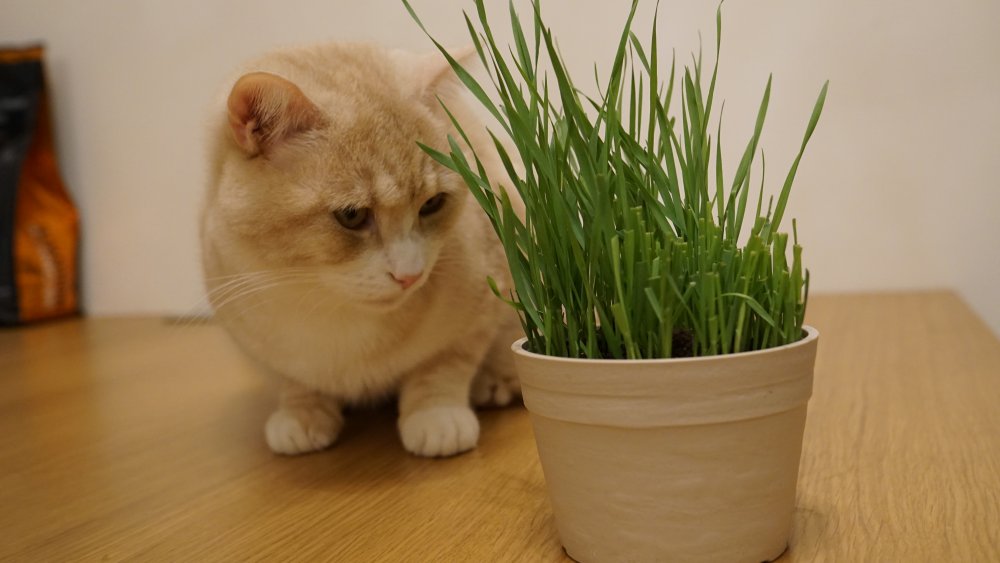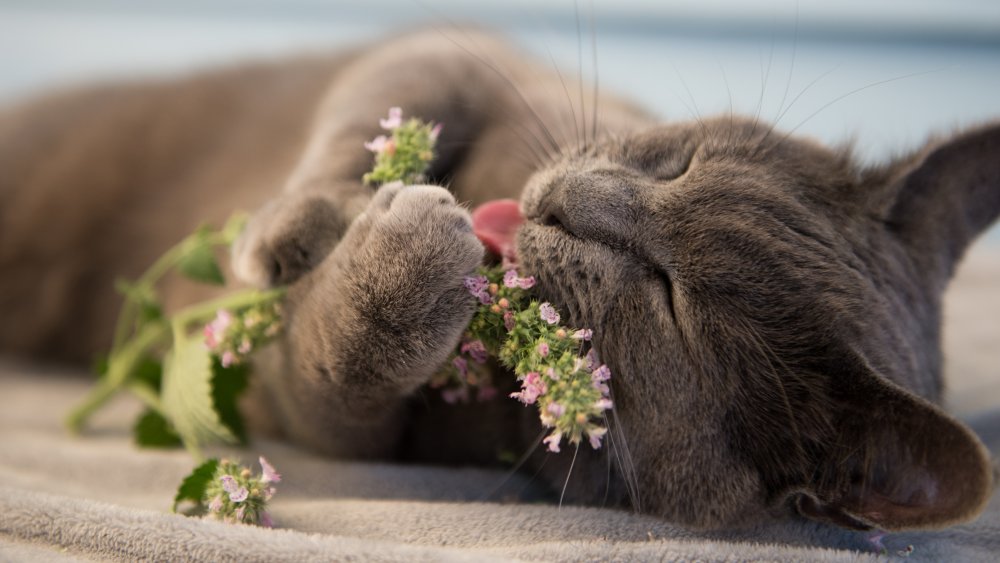The Real Reason Cats Absolutely Love Catnip
Everyone knows that cat facts and cat videos make the internet go around. Some of the best revolve around the wacky, bizarre antics that cats get up to after indulging in their version of demon weed: catnip. Why do our feline friends crave catnip so hard?
Not all cats even react to catnip's mind-altering capabilities. According to Scientific American, catnip highs are hereditary; "about 70 to 80 percent of cats" are susceptible to its effects as adults. Kittens don't react to catnip at all; the lucky 70 to 80 percent who do react can catch the buzz once they reach sexual maturity at about six months old.
Catnip works when one of its volatile oils, nepetalactone, enters feline nasal passages and "bind[s] to protein receptors that stimulate sensory neurons." These neurons' responses project to the brain's amygdala, which controls emotional response to stimuli, and the hypothalamus, which "plays a role in regulating everything from hunger to emotions." Altogether, cats exposed to catnip are "react[ing] to an artificial cat pheromone."
Catnip's chemicals act like an artificial cat pheromone
Cats high on catnip "may rub their heads and body on the herb or jump, roll around, vocalize and salivate" ... behavior similar to that of female cats in heat, per Scientific American. The catnip's effects will last for about 10 minutes, at which points cats will become immune to its influence for about 30 minutes, at which point the good times can resume all over again.
Is all this fun at all dangerous for cats? According to PetMD, "catnip doesn't have any known long-term effects on a cat's brain or any other part of her body, and it isn't addictive." In fact, catnip can be used to comfort cats during stressful periods "like traveling, when introducing a new pet, or moving to a new home" and "can help timid cats experience playful behaviors and help keep playful cats from becoming bored." Furthermore, people can enjoy catnip as well; Healthline notes that catnip tea "is sometimes used to treat conditions like insomnia, anxiety, and headaches" and that for humans, nepetalactone "can improve relaxation."

